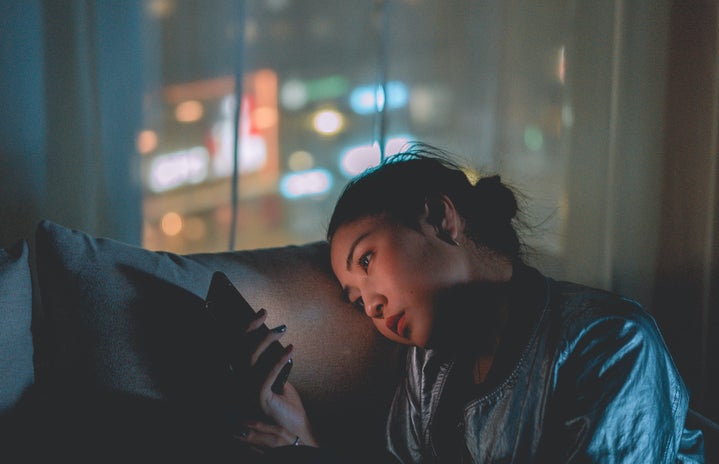I, like probably many of you, recently finished watching season 3 of The Circle US which premiered on Netflix last month. The addictive reality show based on gaining popularity and catching catfish has grown from strength to strength since season 1 debuted back in January of 2020. On the surface, the concept may seem bizarre. It bears the questions: why would you watch hours upon hours of people communicating via text messages through “The Circle” with other strangers to try and form genuine relationships?
We are all absorbed in the world of social media and are obsessed with the endorphins we get when someone pays us any attention online, whether it be a follow, like, comment, or DM. Take this and imagine getting constant, mostly positive and esteem-boosting messages and interactions, from strangers who quickly become your virtual friends. That’s the best way I can describe The Circle.
The term catfishing is something you hear so much about in the online sphere, but with The Circle, the concept becomes a reality as many players choose to enter the game as someone they’re not. The Circle exposes the sad reality that many people lie online to make themselves more appealing to their followers. Some contestants simply choose to change their age or lie about their occupation to make themselves sound more interesting, while others will commit the ultimate identity theft by pretending to be someone else.
Having spent so much time at home in the last year and a half, many of us were online more than ever and began to meet with others virtually. Many connections and friendships were made with people we had never met face-to-face. While exciting, it is also hard to know who and what is actually real. These online connections can be seen as clear as day in “The Circle.” Take season 2 for example: contestant DeLessa Unique used her husband Trevor’s photos for her profile and mixed both her and Trevor’s personalities to create the ultimate player. While “Trevor” gained popularity quite fast, DeLessa also decided to begin a romantic relationship between Trevor and fellow popular competitor Chloe. While this was all done to pull ahead and forge deeper connections and another alliance, it truly shows how some social media users may resort to building romantic relationships with strangers on the internet to manipulate others. It puts into question whether or not online dating is a truly safe and viable option for finding romance.
What I have found most striking after watching so many episodes of this show is that everyone to a certain extent lies about themselves on social media platforms. I have never seen any contestant be their true authentic self, even if some of them say they have. While you may argue that this is a show where being the best version of yourself is a necessity, couldn’t you argue the same can be said for reality? We want to people please, so that that sentiment is returned to us. This is very obvious when watching an episode of the show. While certain contestants may be using their real identities, their words may oftentimes be fake to form alliances to get to the top of the ratings to become an “influencer”.
Think about your online presence. Have you remained 100% authentic from the beginning? Probably not.
More likely than not, you have posted a picture of yourself on a night out with a caption that suggests you had a great time when in reality, you did not. Or, you might have tweaked your photos with filters and other editing tools to feel more confident about yourself. While no one is going to stop you from doing that, it takes away the authentic side of social media. It has become hard to be genuine online when so many outside forces cause us to try and fit the mold that our lives are perfect and everyone we know needs to know it too. While the emergence of “photo dumps” has helped bring back the more casual aspect of social media from when it first began, we are still very selective with what we do or don’t post.
Reality TV is often labeled as “trash” and a “bad influence”, but I think there is always something to learn from them. While The Circle may seem like just another reality competition show in a long line, it has served a purpose. It has re-enacted the concepts of catfishing and deception on social media that we hear about so often but do not necessarily believe until we become a victim of it.

